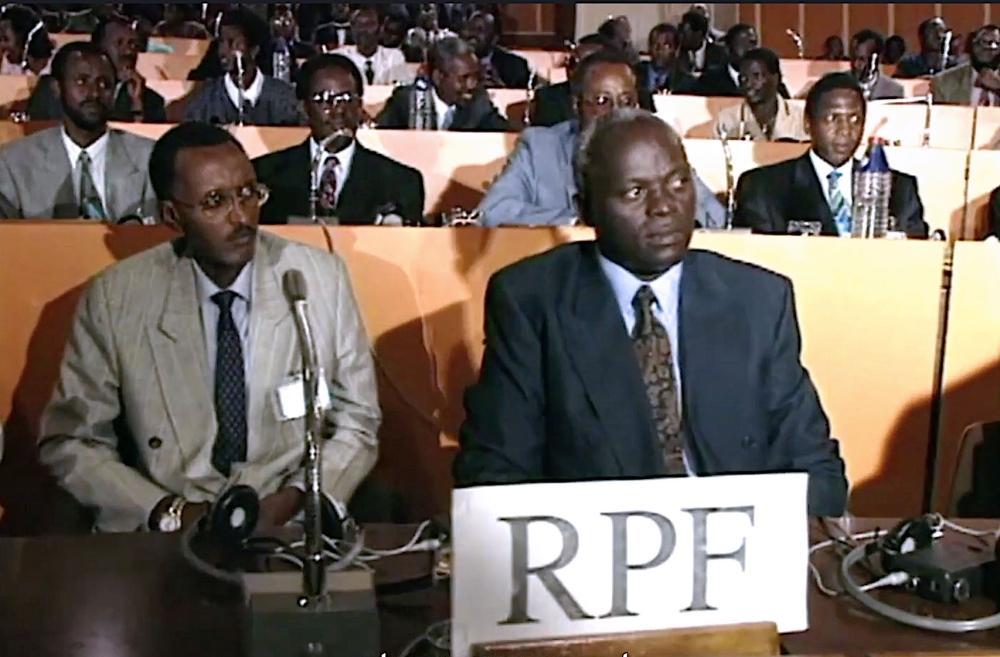Peter Ruti
Africa-Press – Rwanda. In the last article in this series, we noticed how President Juvenal Habyarimana’s Western allies advised him that it was necessary to look for a solution to his country’s crisis from Rwanda’s geographical environment. Particularly, the Belgian Prime Minister, Foreign Affairs Minister and the Defence Minister insisted on the fact that it was incumbent on Rwanda to find a solution to the crisis. In this piece, we shall realise the softening on the part of the Rwandan government.
During the Paris conference held from June 6-8, 1992, for the first time, representatives of the Rwandan government and the Rwanda Patriotic Front (RPF) sat together to lay down the basis of their negotiations as equal political partners. Rwanda and France wanted the latter to play the role of facilitator. The RPF rejected that proposal not only because of France’s involvement in the Rwandan crisis but also because the RPF found it politically wrong to look for the mediation of a former colonial power.
Rwanda proposed Senegal for President Abdou Diouf was the chairman of the Organisation of African Unity (OAU). RPF preferred to look for help from Rwanda’s neighbouring states. Presidents Mobutu of Zaire and Nyerere of Tanzania were accepted as “mediators and facilitators” respectively. These two terms were never defined precisely.
Genuine negotiations started in Arusha in July 1992 and were concluded on August 4, 1993. These negotiations were held because of pressure from the international community but more especially because of military pressure exerted by Rwanda Patriotic Army, the RPF’s military wing.
It should also be remembered that in those negotiations, there were Rwandan protagonists consisting of: the Rwandese government, the unarmed opposition and the RPF. There were foreign observers from the region, the OAU, Belgium, France and the United Nations.
During the negotiations, the Rwandan government did not present a united front. On one side, there was the ruling MRND party and on the other, the Prime Minister and ministers from the opposition. MRND, by virtue of its structure, wielded real power but did not take these negotiations seriously as its leaders confirmed later.
Casmir Bizimungu, the Foreign Affairs Minister before the installation of the government led by the opposition Prime Minister Dismas Nsengiyaremye suggested to President Habyarimana to send “a low calibre delegation of technocrats”. President Habyarimana himself described the Arusha protocol as “rags” and all manoeuvres that were made to fail the negotiations, notably the absence of the MRND minister during cabinet meetings aimed at giving the government delegation guidelines to follow. Every point on the agenda confirms the above assertion. The government delegation, led by Foreign Affairs Minister Boniface Ngulinzira, openly supported putting an end to the war.
The unarmed political parties, grouped under the democratic forces for change, composed of MDR, PL, PSD and PDC, contacted RPF and held discussions with it per their respective programs. Three main tendencies could be discerned within those unarmed opposition political parties. Some in the opposition subscribed, with some minor differences, to the political program of RPF. Others thought that they could share a common platform with RPF but keep their own identity. Part of the opposition neither supported Habyarimana and his MRND party nor did they subscribe to the RPF programme at all. It was that movement which finally joined what would be known as “Hutu Power.”
To the RPF, the negotiations constituted an essential step in its struggle. It employed all necessary means to ensure the success of the negotiations. A delegation led by Pasteur Bizimingu was tasked to lead those negotiations step by step. Depending on the items on the agenda, the RPF high command consulted members of its networks around the world before drafting a document that presented its position to be presented by the delegation in the Arusha negotiations. Reliable witnesses have confirmed that it was the RPF document that was generally used as a basis for the discussions.
Source: The New Times
For More News And Analysis About Rwanda Follow Africa-Press






